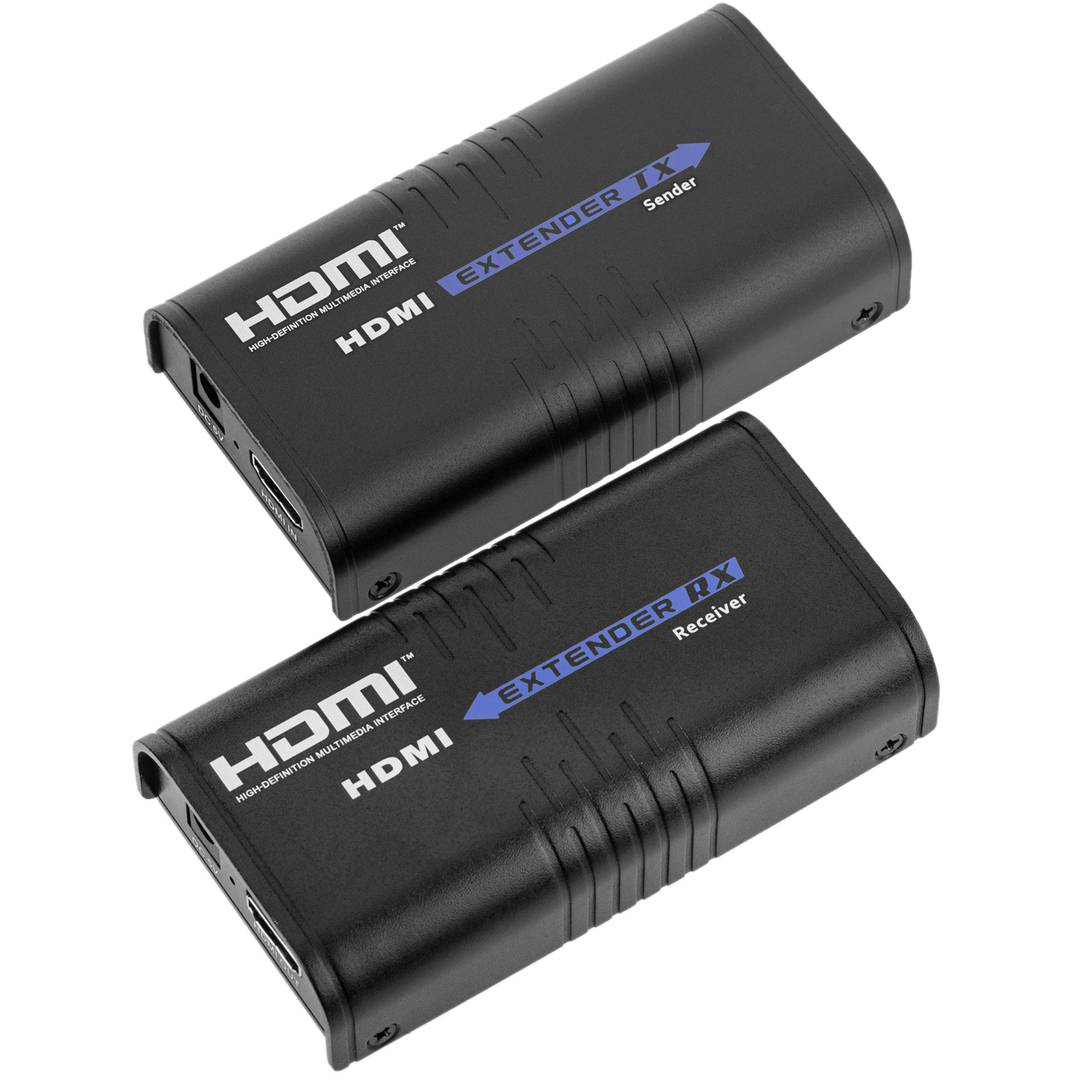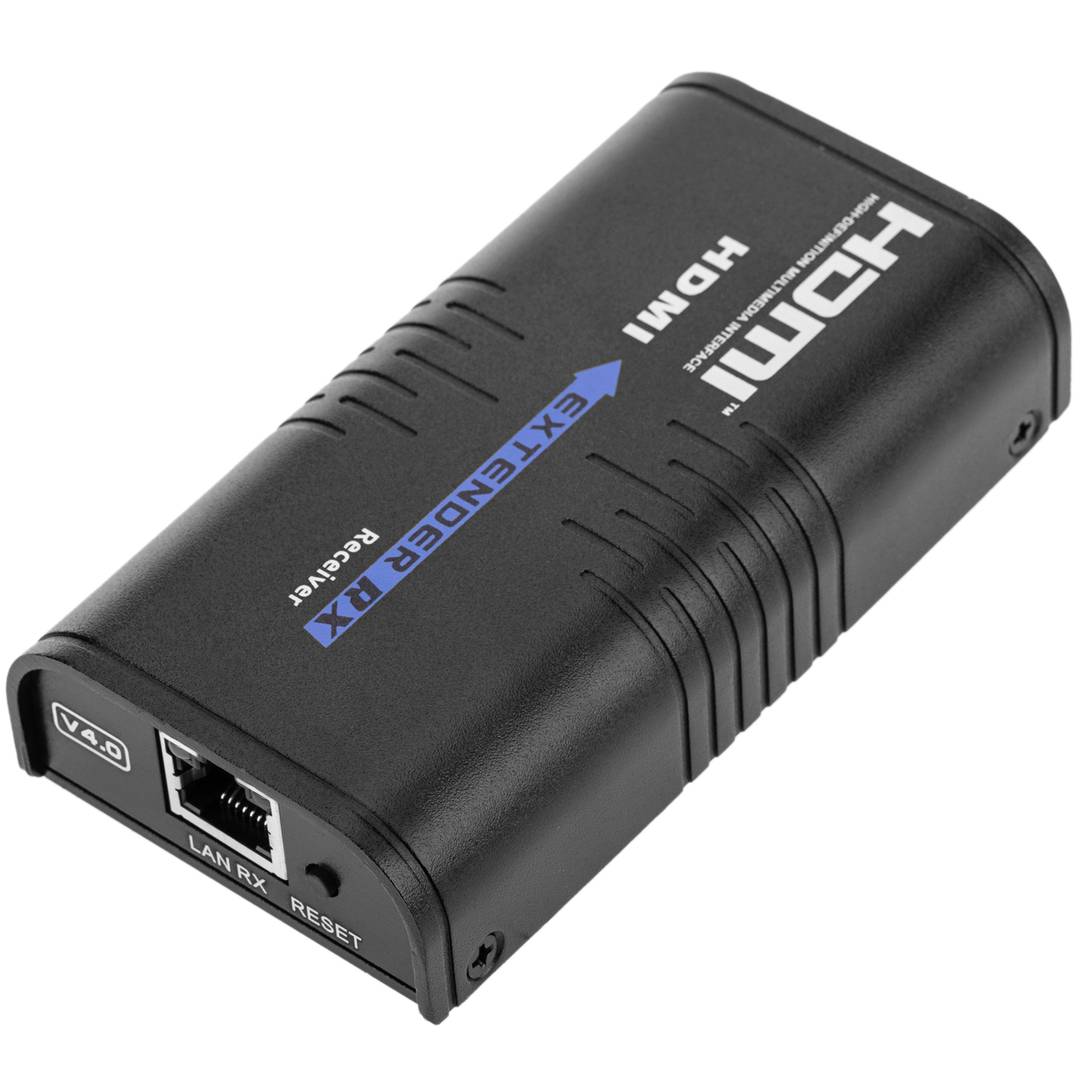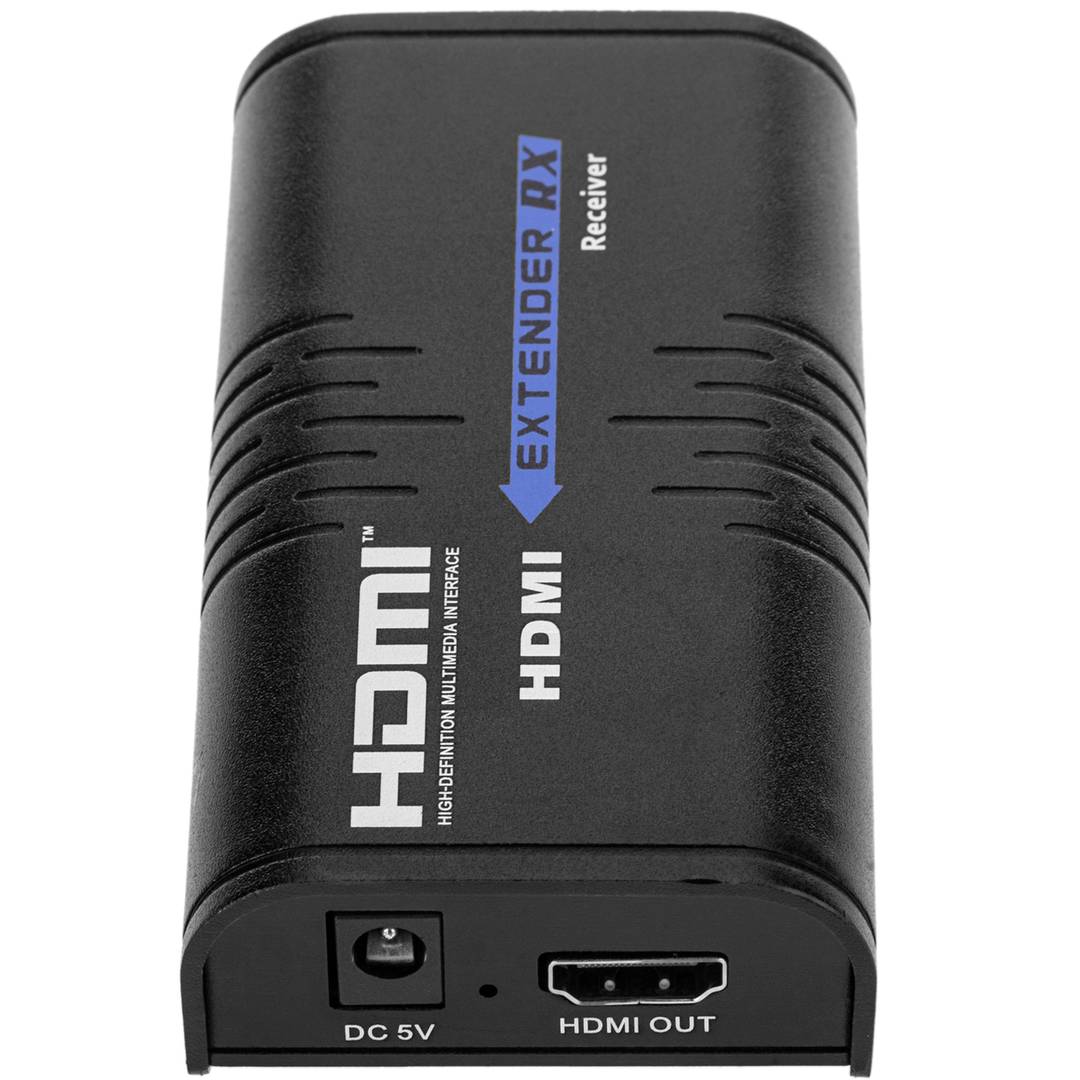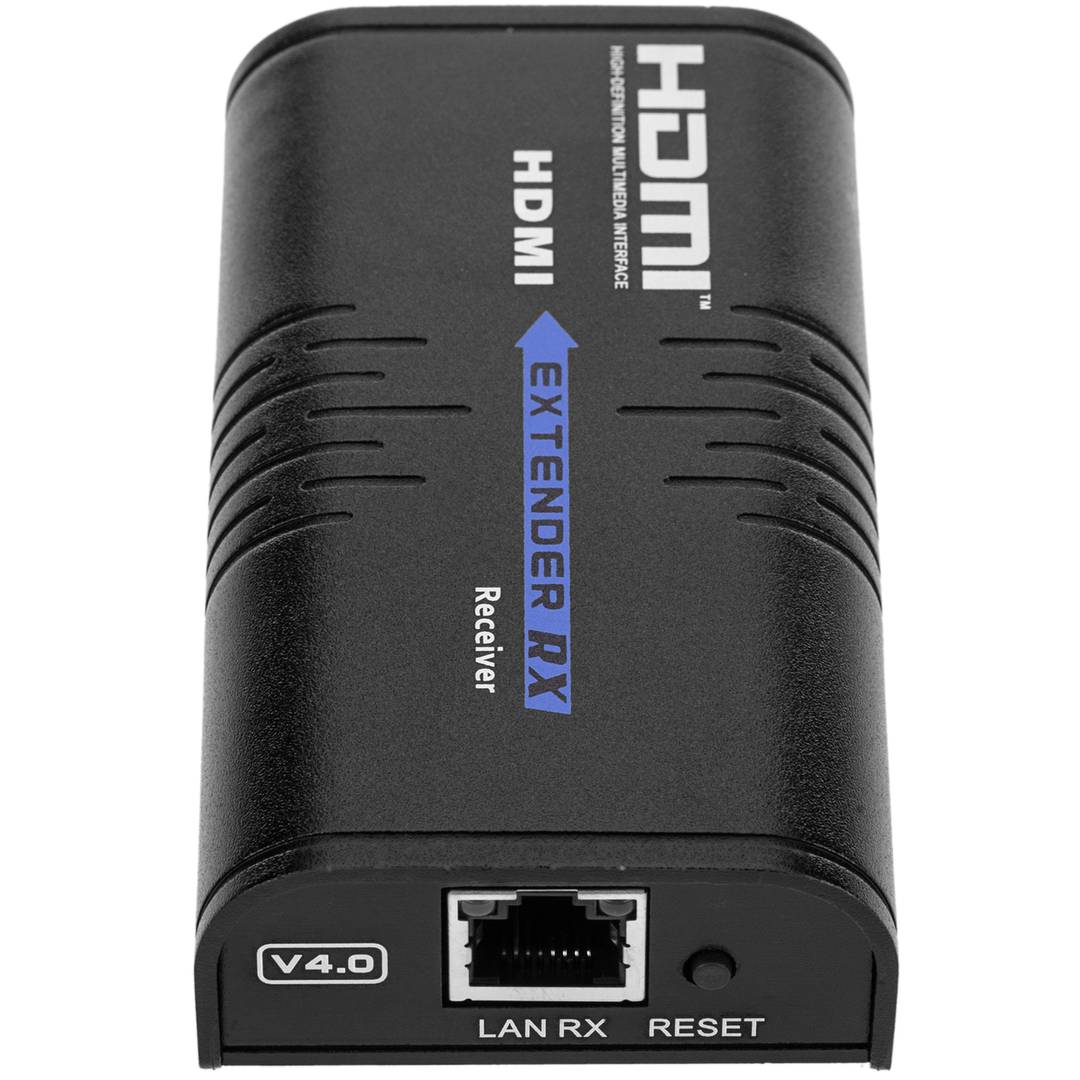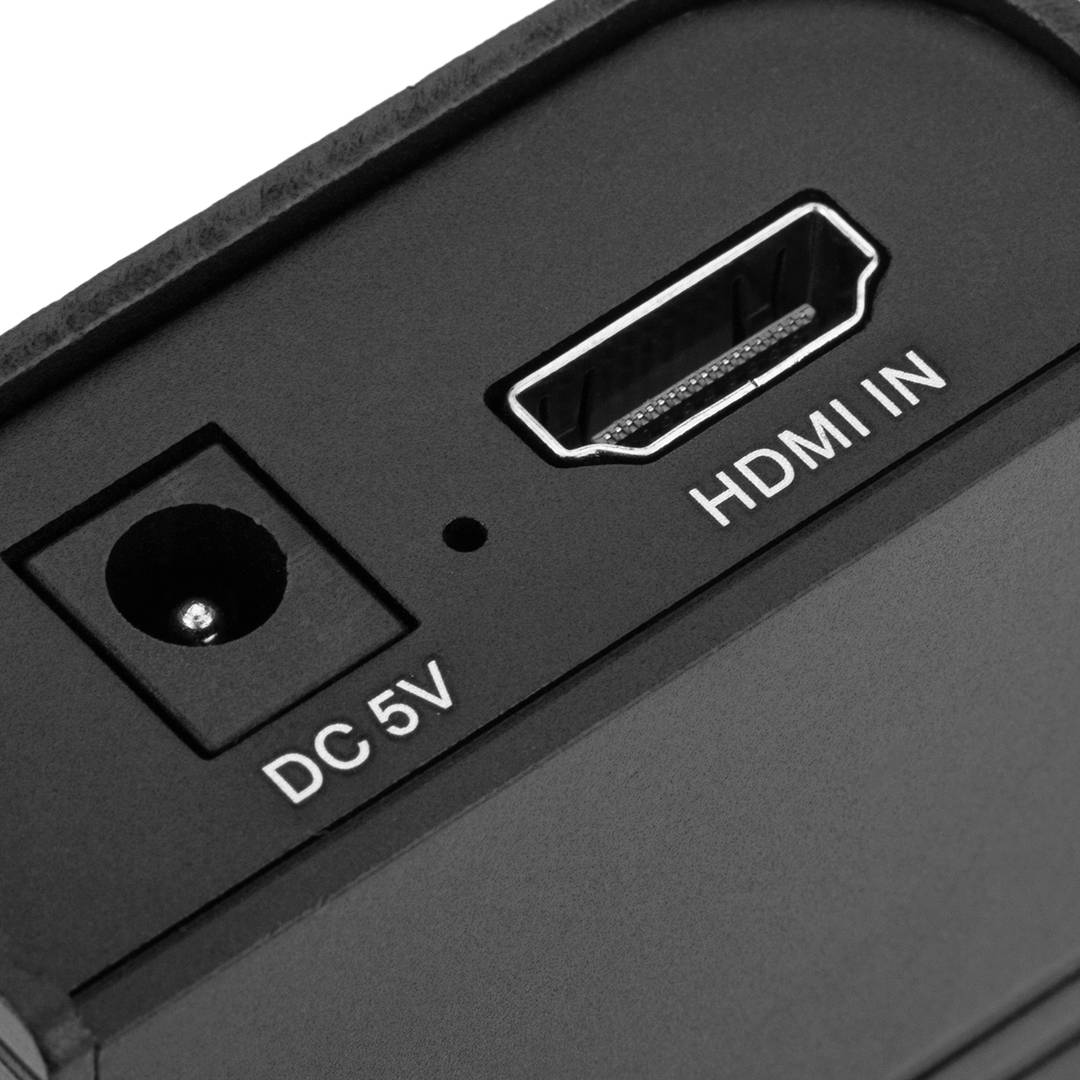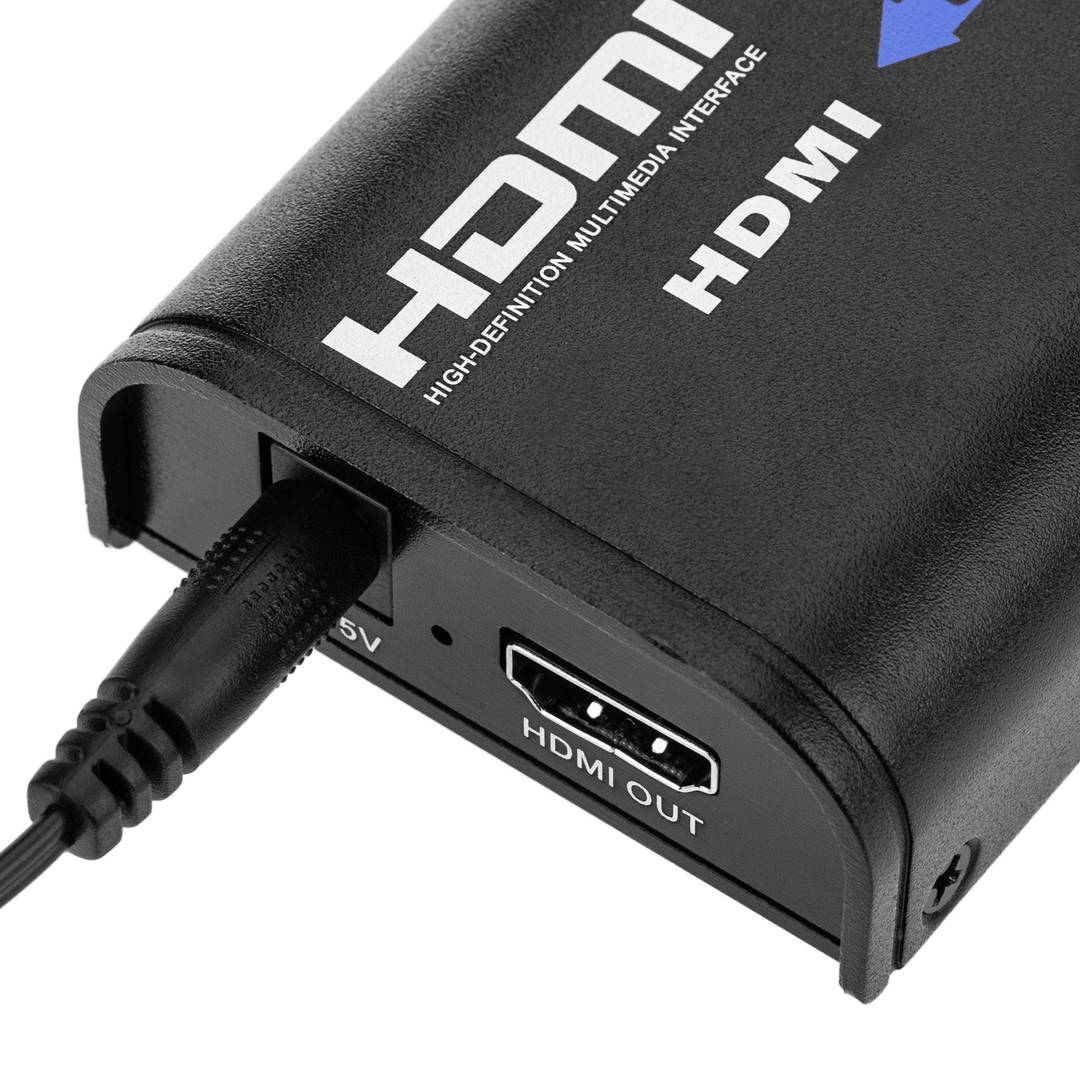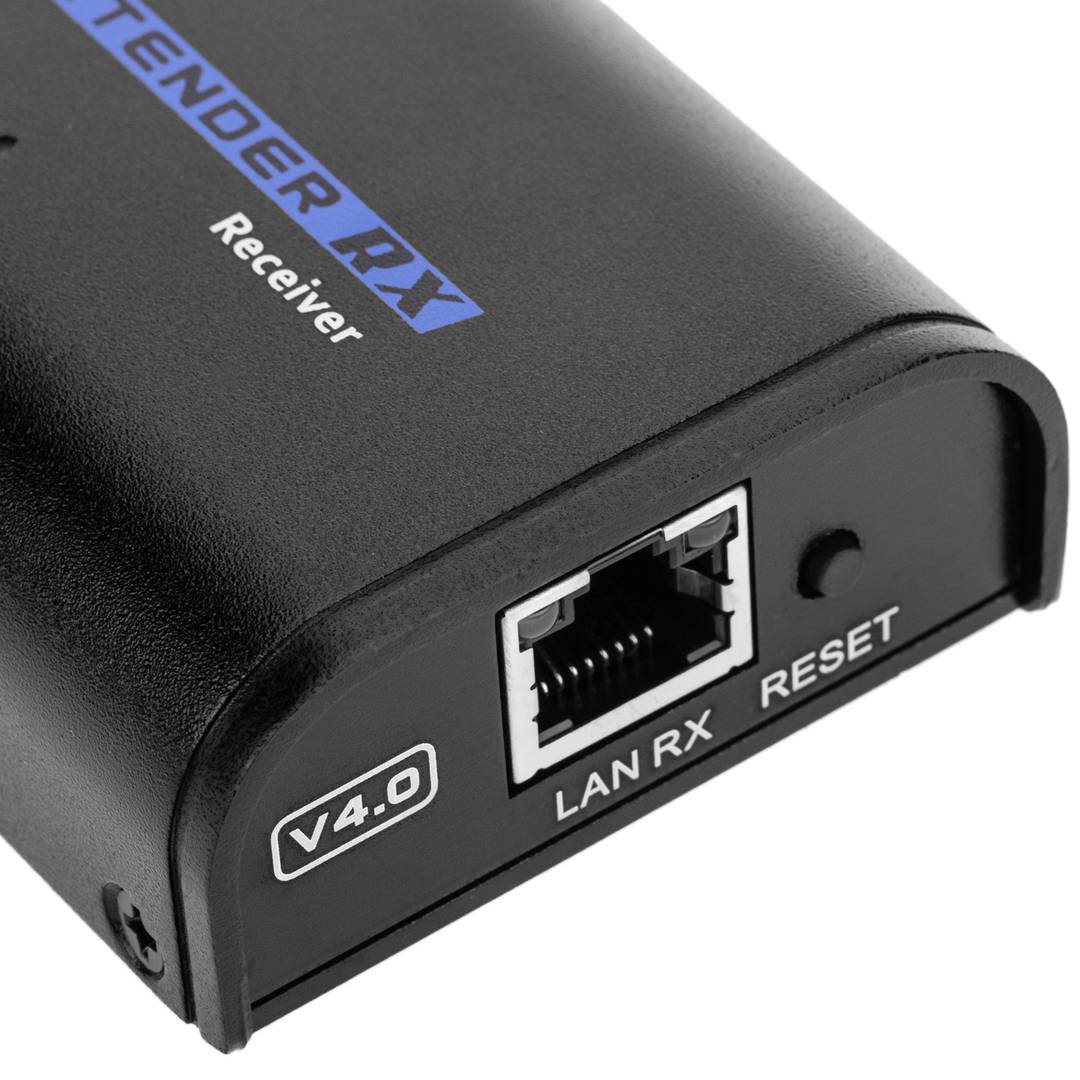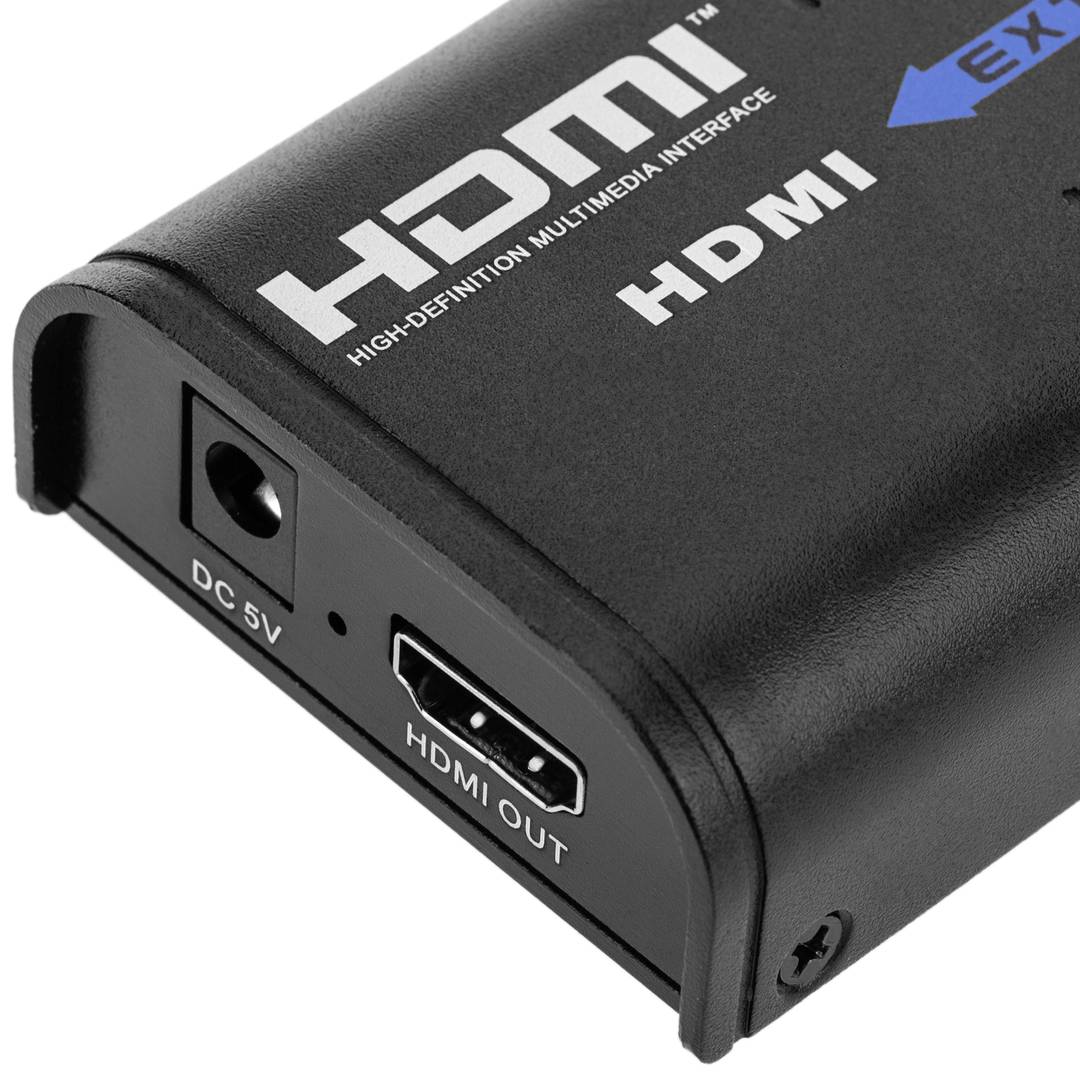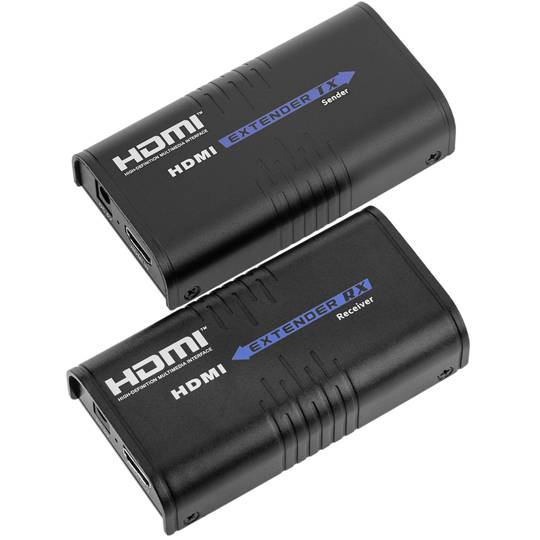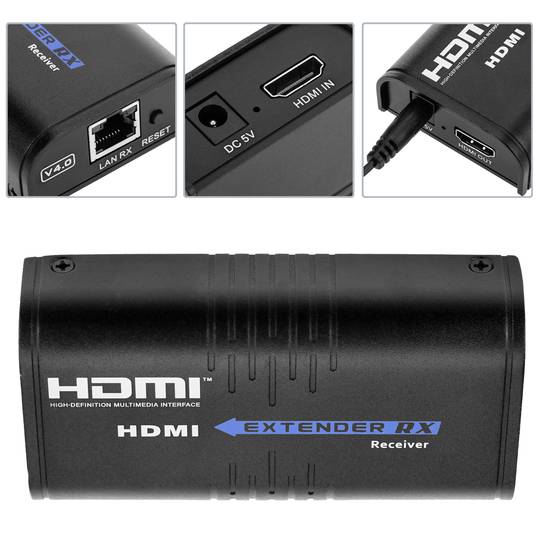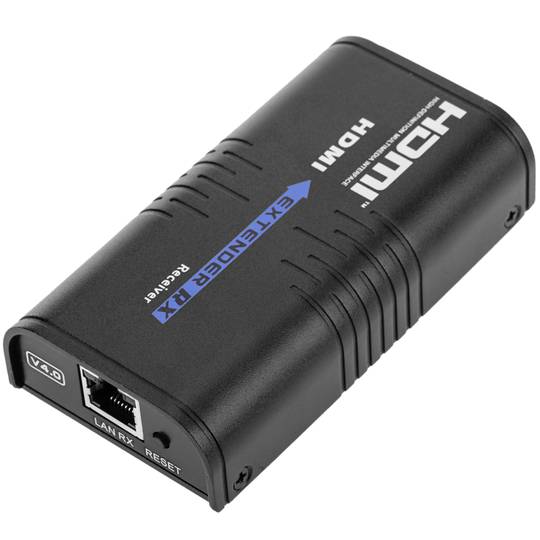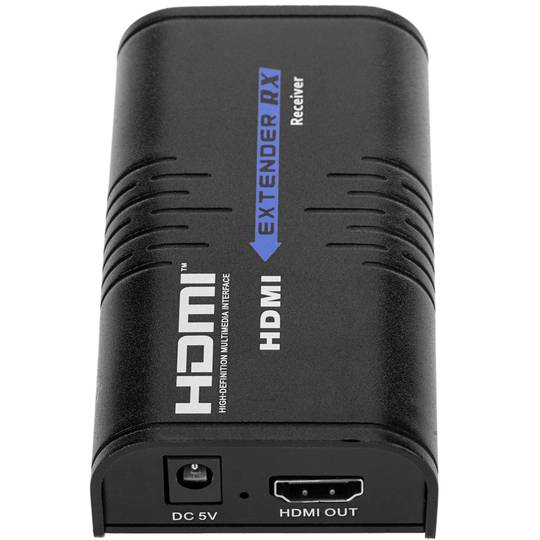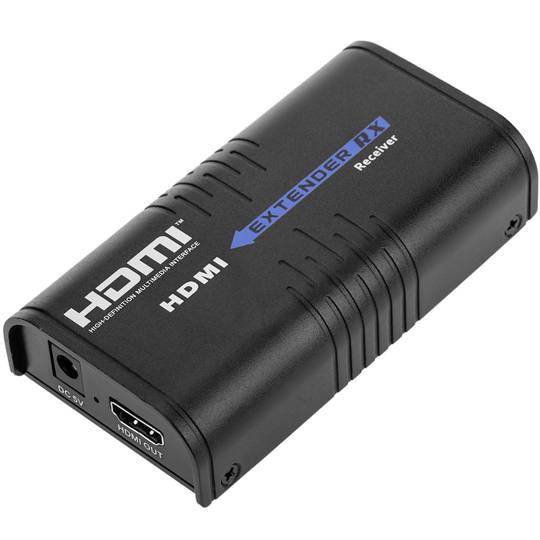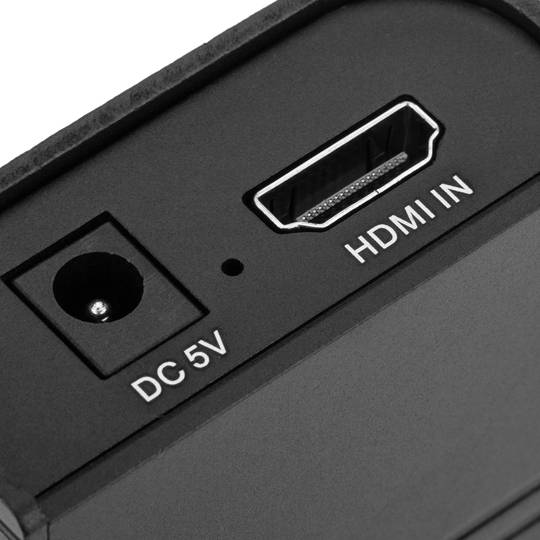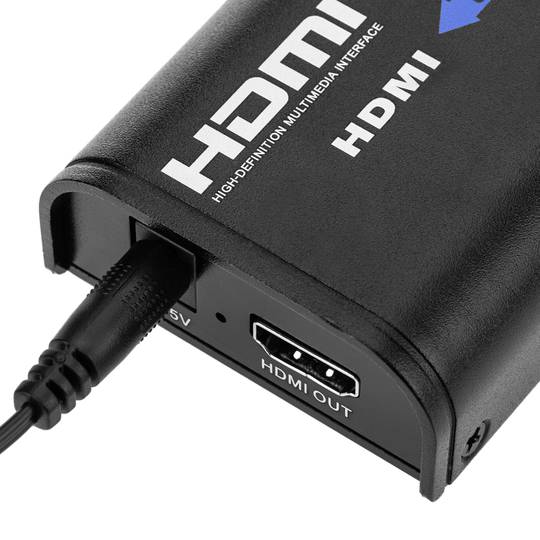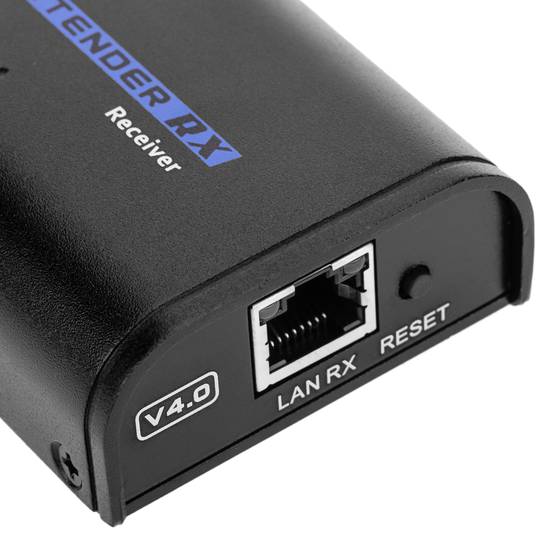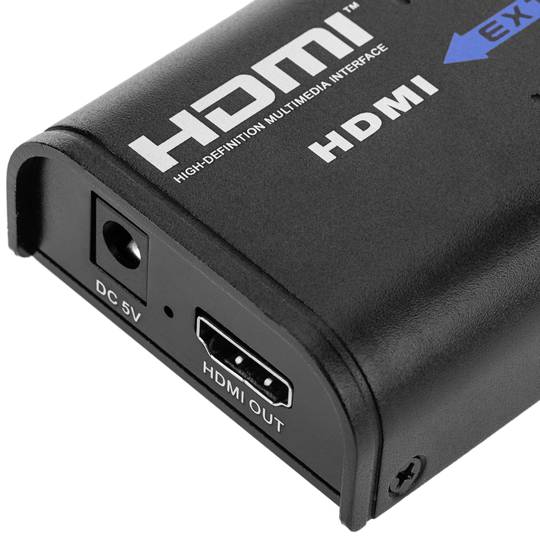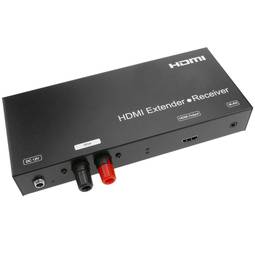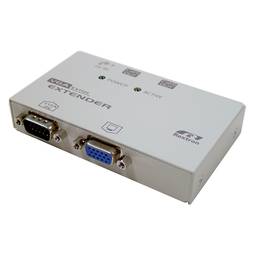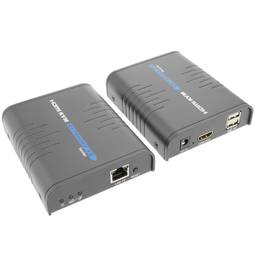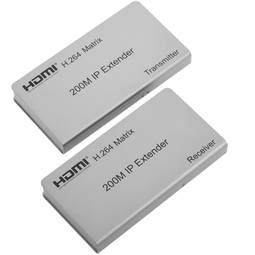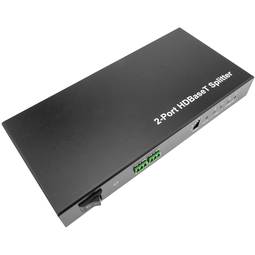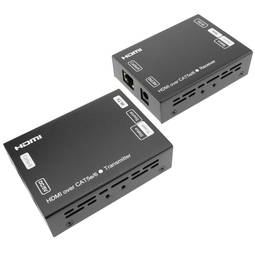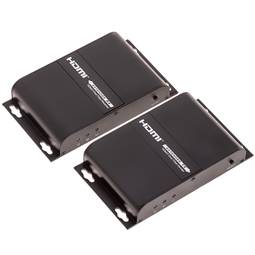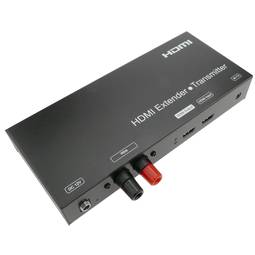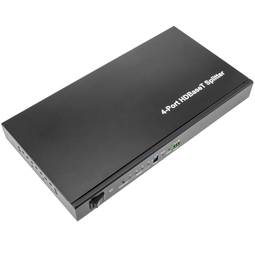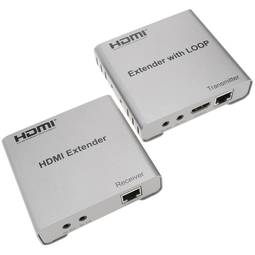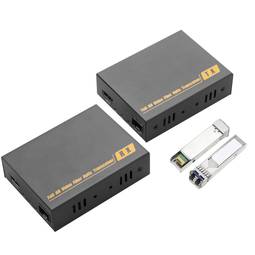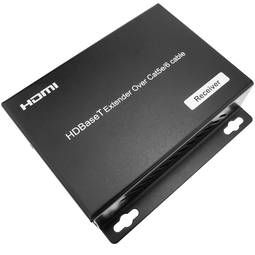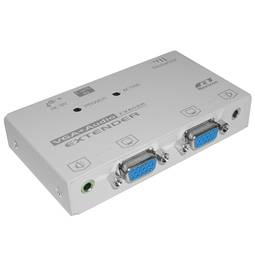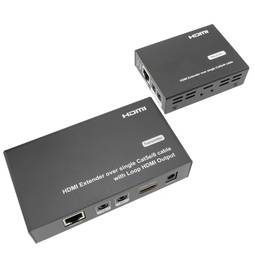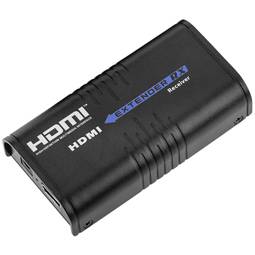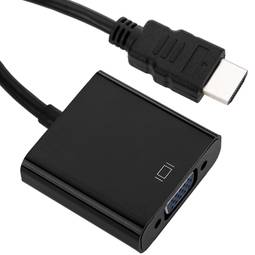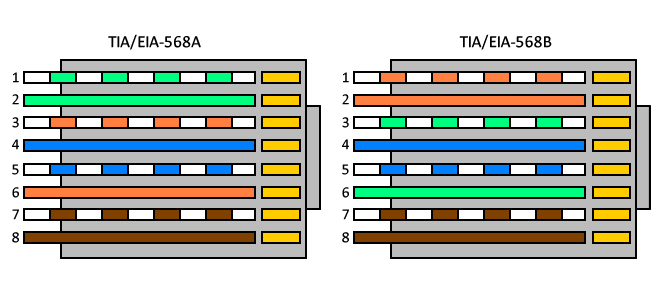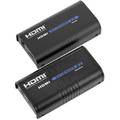02/23/2026 11:50 a.m.
https://cablematic.com/en/products/multiplier-hdmi-extender-over-lan-tx-and-rx-HN007/
https://cablematic.com/en/products/multiplier-hdmi-extender-over-lan-tx-and-rx-HN007/
Multiplier HDMI Extender over LAN Tx and Rx
REF: HN007
Specifications
- Includes Tx transmitter module and version 4.0 Rx receiver module.
- HDbitT transport protocol.
- Maximum supported resolution up to 1920 x 1080.
- HDMI Resolutions: 480i 60Hz, 480p 60Hz, 576i 50Hz, 576p 50Hz, 720p 50/60Hz, 1080i 50/60Hz, and 1080p 50/60Hz.
- Distance in direct point-to-point connection mode: 80m (Cat.5), 100m (Cat.5e) and 120m (Cat.6).
![play_button]() Watch video
Watch video
More info
PVP
€194.44
Price including VAT:
€194.44
PVD
€151.91
PVP: Retail price.
Check conditions.
PVP: Sale price to distributors.
Check conditions.
Immediate delivery
The delivery times are approximate and may vary depending on the selected carrier.
warranty
returns
safe
Specifications
- Includes Tx transmitter module and version 4.0 Rx receiver module.
- HDbitT transport protocol.
- Maximum supported resolution up to 1920 x 1080.
- HDMI Resolutions: 480i 60Hz, 480p 60Hz, 576i 50Hz, 576p 50Hz, 720p 50/60Hz, 1080i 50/60Hz, and 1080p 50/60Hz.
- Distance in direct point-to-point connection mode: 80m (Cat.5), 100m (Cat.5e) and 120m (Cat.6).
Keywords
Did not find what you were looking for? These topic could help you
More info
HDMI extender through local area network (LAN) or point-to-point cable connection. Kit consisting of a transmitter (Tx) and a receiver (Rx) that are interconnected with each other via UTP Cat.5 cable or through an ethernet LAN network. It can work together with an ethernet network, sharing data with other users, hubs, routers, etc. It is possible to work with the following operations:
- Point to point connection . The Tx and Rx are connected via UTP cable. The allowed cable distances are 80m (Cat.5), 100m (Cat.5e) and 120m (Cat.6).
- Point to multipoint connection via Ethernet . This allows the use of an existing ethernet network to connect a Tx to one or more Rx. The LAN switches act as multipliers and the HDMI signal is encoded in ethernet data packets so that they are transmitted as data from an ethernet network. The signal from the HDMI sender is displayed simultaneously on all HDMI displays connected to the receivers. The use of wireless ethernet transmissions is possible but the quality of the HDMI signal depends on the quality of the transmission.
- Point-to-multipoint connection via Ethernet and remote . This allows the use of an existing ethernet network and router to connect a Tx to one or more Rx. The LAN switches act as multipliers and the HDMI signal is encoded in ethernet data packets so that they are transmitted as data from an ethernet network. The signal from the HDMI sender is displayed simultaneously on all HDMI displays connected to the receivers. The Rx can be in different locations connected by routers. The quality of the transmission depends on the bandwidth of the data connections.
specs
- Includes Tx transmitter module and version 4.0 Rx receiver module.
- HDbitT transport protocol.
- Maximum supported resolution up to 1920 x 1080.
- HDMI Resolutions: 480i 60Hz, 480p 60Hz, 576i 50Hz, 576p 50Hz, 720p 50/60Hz, 1080i 50/60Hz, and 1080p 50/60Hz.
- Distance in direct point-to-point connection mode: 80m (Cat.5), 100m (Cat.5e) and 120m (Cat.6).
- Maximum number of receiver modules in the same environment: 253 Rx receivers (HN008).
- Tx module connectors: 1 x HDMI female (connection to the HDMI transmitter) and 1 x RJ45 female (module interconnection).
- Rx module connectors: 1 x HDMI female (connection to HDMI receiver) and 1 x RJ45 female (module interconnection).
- Consumption: 3W each module.
- Two 5 VDC 1 A power supplies are included.
- Module size: 110 x 58 x 26 mm (239 g).
- Gross Weight: 530 g
- Product size (width x depth x height): 11.1 x 5.8 x 2.6 cm
- Number of packages: 1
- Packages size: 20.5 x 14.7 x 8.0 cm
Technical terms
- HDMI
- Types of network cables (UTP, FTP, STP)
- Hz
- 1080p
- VDC
- RJ45
- Categories network cables
HDMI
The English acronym "HDMi" refers to "High Definition Multimedia Interface", that is, it corresponds to the initials of high definition multimedia interface.
The HDMi interface allows the transmission of video and audio between different devices, supporting the video resolutions 480i, 480p, 576i, 576p, 720p, 1080i, 1080p, 1440p, 1600p.
Different versions of HDMi
HDMi 1.0
- December 2002.
- Maximum transfer of 4.9 Gbit / s.
- Support up to 165 Mpixels / s in video mode (1080p 60Hz or UXGA) and 8 channels / 192 kHz / 24-bit in audio mode.
HDMi 1.2
- August 2005.
- Added support for One Bit Audio, used in Super Audio CD, up to 8 channels.
- HDMi Type A availability for PC connectors.
HDMi 1.3
- June 2006
- Bandwidth at 340 MHz.
- 10.2 Gbit / s data rate.
- Dolby TrueHD and DTS-HD,
HDMi 1.4
- Send high definition video and audio,
- 3D data and video.
- FullHD to XHD (eXtended High Definition) up to 4096 × 2160 pixels (24 frames per second) or 3840 × 2160 to (30 frames per second).
- Audio return channel that will require fewer cables to have a surround sound system connected to the television.
- Ethernet connection built into the cable itself with speeds of up to 100 Mbit / s.
HDMi 2.0
- September of 2013
- Bandwidth up to 18 Gbit / s
- 4K @ 50/60 (2160p) video
- Up to 32 audio channels for a multi-dimensional immersive experience
- Up to 1536kHz audio frequency for maximum sound fidelity
- Simultaneous delivery of 2 streaming video for multiple users on the same screen
- Audio streaming up to 4 users
- Support Theater Angle 21: 9 radio
- Dynamic synchronization of video and audio in streaming
- CEC command extensions to control multiple devices from a single point.
Types of HDMi
Type A (in image 1): It is the most standard connector used in almost all devices.
Type B (in image 2): It is a very little used connector.
Type C (in image 3): It is a connector widely used in tablets, smartphones and other devices.
Type D (in image 4): It is a connector used in smartphones.
Type E (in image 5): It is a connector used in vehicle connectivity.
The HDMi interface allows the transmission of video and audio between different devices, supporting the video resolutions 480i, 480p, 576i, 576p, 720p, 1080i, 1080p, 1440p, 1600p.
Different versions of HDMi
HDMi 1.0
- December 2002.
- Maximum transfer of 4.9 Gbit / s.
- Support up to 165 Mpixels / s in video mode (1080p 60Hz or UXGA) and 8 channels / 192 kHz / 24-bit in audio mode.
HDMi 1.2
- August 2005.
- Added support for One Bit Audio, used in Super Audio CD, up to 8 channels.
- HDMi Type A availability for PC connectors.
HDMi 1.3
- June 2006
- Bandwidth at 340 MHz.
- 10.2 Gbit / s data rate.
- Dolby TrueHD and DTS-HD,
HDMi 1.4
- Send high definition video and audio,
- 3D data and video.
- FullHD to XHD (eXtended High Definition) up to 4096 × 2160 pixels (24 frames per second) or 3840 × 2160 to (30 frames per second).
- Audio return channel that will require fewer cables to have a surround sound system connected to the television.
- Ethernet connection built into the cable itself with speeds of up to 100 Mbit / s.
HDMi 2.0
- September of 2013
- Bandwidth up to 18 Gbit / s
- 4K @ 50/60 (2160p) video
- Up to 32 audio channels for a multi-dimensional immersive experience
- Up to 1536kHz audio frequency for maximum sound fidelity
- Simultaneous delivery of 2 streaming video for multiple users on the same screen
- Audio streaming up to 4 users
- Support Theater Angle 21: 9 radio
- Dynamic synchronization of video and audio in streaming
- CEC command extensions to control multiple devices from a single point.
Types of HDMi
Type A (in image 1): It is the most standard connector used in almost all devices.
Type B (in image 2): It is a very little used connector.
Type C (in image 3): It is a connector widely used in tablets, smartphones and other devices.
Type D (in image 4): It is a connector used in smartphones.
Type E (in image 5): It is a connector used in vehicle connectivity.



